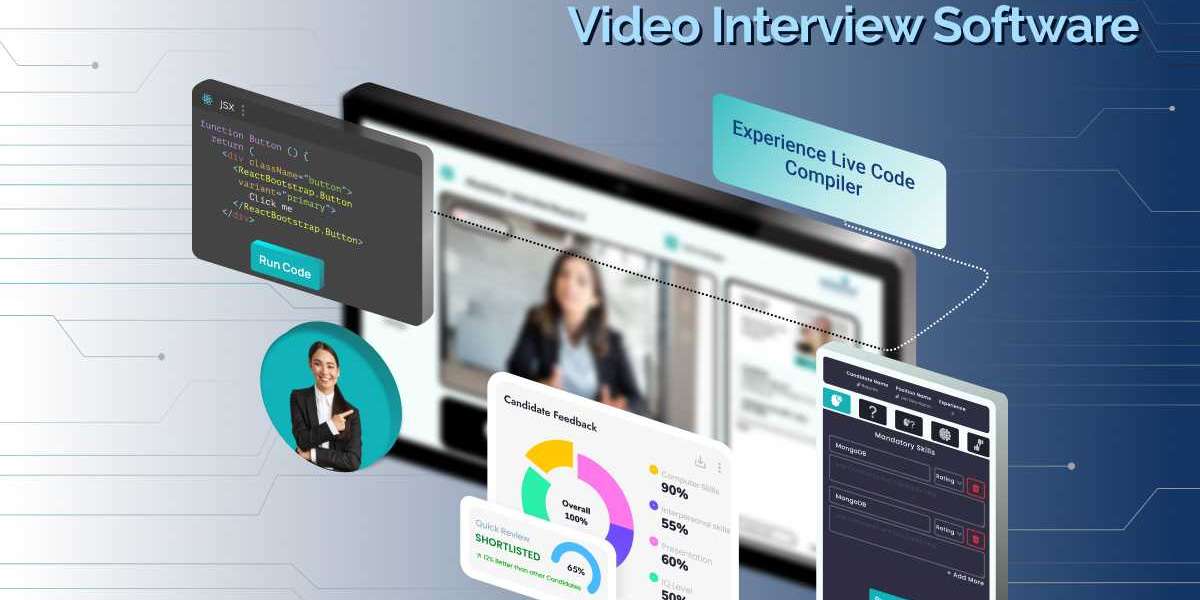The traditional hiring process has long been plagued by bias and discrimination, which often results in qualified candidates being overlooked and underrepresented in the workforce. However, with the advent of artificial intelligence (AI), we are witnessing a transformative shift in the recruitment landscape. AI-powered tools and algorithms are revolutionizing the hiring process, making it more inclusive, unbiased, and equitable. In this blog post, we will explore the concept of bias-free hiring and how AI is playing a crucial role in leveling the employment playing field. Check this interview as a service for smooth and bias-free hiring.
Bias in the hiring process is deeply rooted in human decision-making. Unconscious biases based on factors like gender, race, age, and appearance often influence recruiters' judgments, leading to discriminatory practices. These biases not only undermine diversity and inclusion efforts but also hinder organizations from accessing the full potential of talent available.
Artificial intelligence, on the other hand, relies on data-driven analysis and algorithms to make objective decisions. By leveraging machine learning and natural language processing, AI systems can identify patterns, assess qualifications, and predict job performance without being influenced by personal biases. This capability makes AI an ideal tool for eliminating bias in the hiring process.
One key application of AI in bias-free hiring is in resume screening. Traditional resume screening is subjective and prone to bias, as recruiters tend to favor certain characteristics or experiences. AI-powered tools, however, can scan resumes and extract relevant information based on predefined criteria. This ensures that all applicants are evaluated based on their qualifications and skills rather than subjective judgments. AI algorithms can also be designed to redact personal information such as names, gender, and ethnicity from resumes, further eliminating potential bias.
AI is also reshaping the interview process by introducing virtual interviews and automated video assessments. Video interviews conducted by AI platforms allow candidates to showcase their skills and competencies in a standardized manner. These assessments can be evaluated objectively, focusing on job-related qualities rather than superficial factors. Furthermore, AI algorithms can analyze facial expressions, voice tone, and word choice to gauge candidates' emotional intelligence and fit for the role. This data-driven approach reduces the influence of biases in the hiring decision-making process. You can also check our AI powered video interview platform.
In addition to resume screening and interviews, AI is aiding in the creation of more inclusive job descriptions. Biased language and subtle gender-coded words can discourage qualified candidates from applying. AI algorithms can analyze job postings and suggest alternative phrasing to ensure gender-neutral language and appeal to a wider pool of candidates. This proactive approach contributes to a more diverse applicant pool and fosters inclusivity from the outset.
While AI has immense potential in bias-free hiring, it is crucial to acknowledge that AI systems are only as unbiased as the data they are trained on. Biases present in historical data can be inadvertently learned and perpetuated by AI algorithms, leading to biased outcomes. Therefore, it is essential to continuously monitor and audit AI models to identify and rectify any biases that may arise. Additionally, diversity and inclusivity must be prioritized during the training and development of AI systems to ensure fair and accurate results. Also, check this interview scheduling software which is an AI-Powered Interview Scheduling tool to track applicants' status and collect interview feedback.
Bias-free hiring is not just a moral imperative; it is also a strategic advantage for organizations. Research consistently demonstrates that diverse teams drive innovation, creativity, and improved business performance. By leveraging AI to remove biases from the hiring process, organizations can tap into a broader talent pool and build teams that reflect the diverse perspectives and experiences of their customers and society at large.
In conclusion, artificial intelligence is transforming the hiring process by eliminating biases and fostering more inclusive practices. AI-powered tools enable objective evaluation of candidates, from resume screening to interviews and job descriptions. However, it is crucial to acknowledge and mitigate the potential biases within AI systems themselves. Bias-free hiring is not an endpoint but an ongoing commitment to fairness and equity in recruitment.
Some more useful resources:
Ref: https://medium.com/@incruiter.ppc/bias-free-hiring-how-artificial-intelligence-is-leveling-the-employment-playing-field-b1bd2374ea6e








